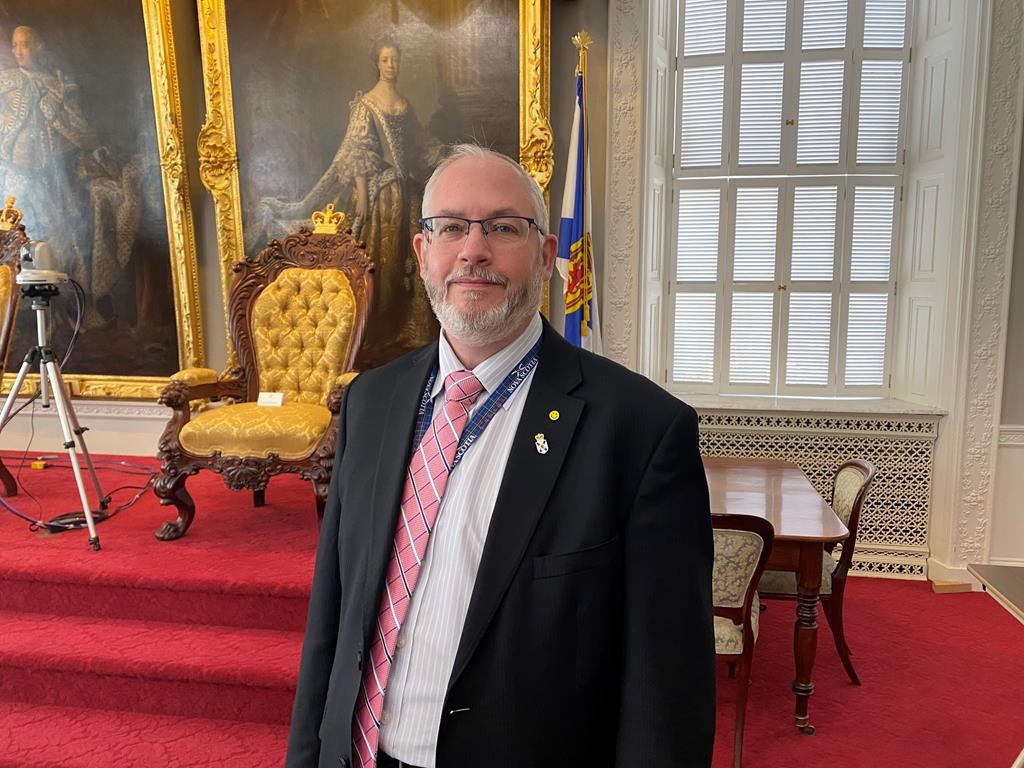New ‘high-risk’ category will keep mentally ill offenders under wraps: Harper
Posted Feb 8, 2013 07:58:36 PM.
This article is more than 5 years old.
BURNABY, B.C. – Prime Minister Stephen Harper announced legislation Friday that places new restrictions on violent offenders deemed not criminally responsible for their actions, invoking a horrific case in British Columbia that saw a mentally ill father kill his three children.
The changes prompted immediate skepticism from mental health experts and advocates, who suggested the Conservative government is viewing mentally ill offenders as criminals who deserve to be punished, rather than patients who need treatment.
But Harper suggested current laws fail to protect the public and victims from violent, mentally ill offenders.
“When atrocious events do occur, and the state fails to act, fails to do all it can do to defend innocent citizens, it violates the inherent trust upon which its existence is justified,” Harper said in Burnaby, east of Vancouver.
“We’ve heard from Canadians loud and clear: Something here is very wrong.”
The proposed legislation would allow courts to designate people who are found not criminally responsible for violent crimes as “high risk.” Such offenders could be held longer without a formal review, would be ineligible to leave their forensic facility by themselves and would find it far more difficult to leave even with an escort.
Harper unveiled the changes at a news conference in the Vancouver area, not far from where Allan Schoenborn, who was deemed not criminally responsible for the deaths of his three children in 2008 in Merritt, B.C., is scheduled to attend a hearing next week. The hearing will determine whether Schoenborn, who is currently confined to a psychiatric hospital, should be given any access to the outside world.
Harper, who said he met with Schoenborn’s ex-wife, Darcie Clarke, earlier Friday morning, said the case exposed “glaring gaps” in the system.
“Currently, there is no obligation under law or regulation to warn the families of their victims that these violent people are returning to the community,” he said.
“Here is the biggest problem: Canadians have been shocked to learn that certain violent individuals who, while still in detention, have received unescorted day passes despite still being a significant threat to public safety.”
In 2011, the case prompted renewed headlines when the B.C. Review Board concluded the lead psychiatrist at the Port Coquitlam facility could decide whether to allow Schoenborn to take escorted trips into the community, where, it turned out, Schoenborn’s ex-wife also lives.
The psychiatrist said later he didn’t know Clarke was living nearby.
Offenders deemed to be a high risk under the new law could not be released until a court agrees. They would never receive unescorted passes to leave their facility and could only receive escorted passes in “narrow circumstances,” the government said.
Currently, a review board — chaired by a judge and including mental health professionals — assesses such cases on an annual basis. Under the new law, high-risk offenders could be held for up to three years before their status is reviewed.
Stacy Galt, Darcie Clarke’s cousin, said the new legislation will put victims such as her family first.
“Darcie did nothing wrong, yet she has been held victim by outdated laws and early reviews — there is an imbalance in the system,” Galt told Friday’s news conference.
“Our current system allows a triple child murderer to be given fast freedoms and the mother of his victims to have no say.”
The federal government could not provide any statistics that show how often people who are declared not criminally responsible end up re-offending, but experts say it’s rare.
Dr. Sandy Simpson of the Centre for Addiction and Mental Health said recidivism rates for such offenders are roughly eight per cent, compared to more than 40 per cent for convicts who leave the federal prison system.
Simpson said the proposed legislation represents a significant shift by placing public safety above all other considerations.
He said the current law balances public safety and treating the offender, while calling for the “least onerous and least restrictive conditions” available. The new legislation removes that language, he said.
“I think that is concerning, given that we’re talking about people who have committed acts because they’re sick,” said Simpson, who is also a professor at the University of Toronto.
“This is a product of illness.”
David MacAlister, a criminology professor at Simon Fraser University in Burnaby, B.C., said it’s valuable to ensure victims are notified when offenders are before review boards or when they’re released.
But MacAlister said the new restrictions aren’t supported by evidence about mentally ill offenders and instead appear primarily designed to pacify public anger generated by high-profile cases.
“We’ve got people cutting people’s head’s off, killing little children, so it really does attract a lot of media attention, and I know the public looks at that and thinks, ‘Wow, how can these people ever be back in our midst?'” said MacAlister.
“They tend to be thinking that these people haven’t been punished enough. They’re not realizing that they’re not criminally responsible — they’re not being punished at all.”
A 2006 study for the federal Justice Department looked at 12 years of data and found almost a quarter of offenders declared not criminally responsible spend at least 10 years in the system.
About three quarters of them were diagnosed with schizophrenia or an affective disorder, such as being bipolar or suffering major depression. Some 57 per cent had a prior conviction before being declared NCR.
And their crimes were very serious, with 76.5 per cent charged with a violent offence, another 4.3 per cent with a sex offence and 4.8 per cent with arson.
The study concluded that, due to a lack of data, “little is known about how … accused manage after review board hearings in terms of following conditions, adhering to treatment plans and re-engaging in criminal behaviour.”










